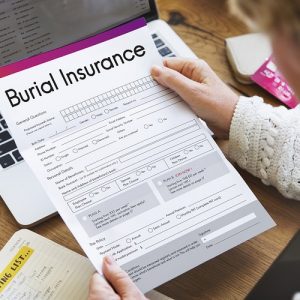 Hairstylists and barbers probably don’t think much about disability insurance, right?
Hairstylists and barbers probably don’t think much about disability insurance, right?
You understand the importance of doing a great job, though. You enjoy making your customers look good and feel great! Being able to wash, cut, trim, style, color, converse (yes!), and more is vital to your livelihood. What if you could no longer do that job? Have you ever thought what would happen if you became sick, ill, injured, and disabled? How would bills be paid if you could not work?
In this article, we discuss disability insurance and the best disability insurance for hairstylists and barbers. Continue reading Best Disability Insurance For Hairstylists and Barbers [Affordable Options To Protect You]
 You don’t wake up in the morning, turn to your spouse, and say “Honey, let’s buy some burial insurance.”
You don’t wake up in the morning, turn to your spouse, and say “Honey, let’s buy some burial insurance.” Here at My Family Life Insurance, we are asked often about indexed universal life insurance (IUL).
Here at My Family Life Insurance, we are asked often about indexed universal life insurance (IUL). Insurance policies for newlyweds? “
Insurance policies for newlyweds? “ Recently, we have had several clients approach us if they should purchase an annuity or life insurance policy as it relates to saving money. Both can offer conservative value growth with really no loss of principal. If you want to
Recently, we have had several clients approach us if they should purchase an annuity or life insurance policy as it relates to saving money. Both can offer conservative value growth with really no loss of principal. If you want to